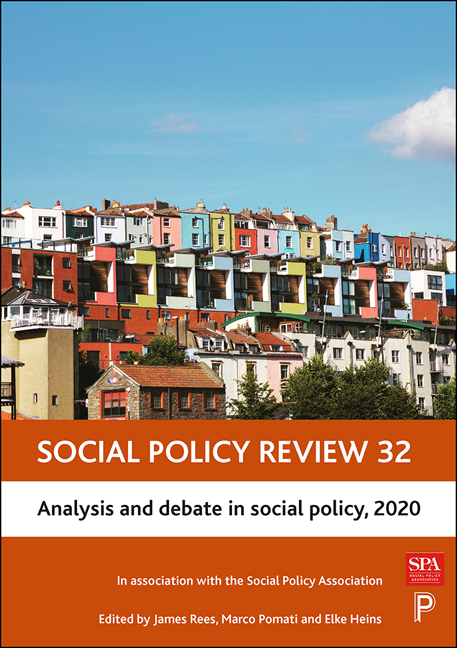9 - After a Decade of Austerity, Does the Uk Have an Income Safety Net Worth Its Name?
Published online by Cambridge University Press: 18 March 2021
Summary
Introduction
The term ‘safety net’, applied to minimum incomes, is seductively reassuring. It expresses a principle that no matter what their circumstances, the state will ensure that citizens will receive an income enabling them to survive, at least at a subsistence level. Structurally, the UK's social security system provides such a safety net for all its citizens: some variant of Income Support (IS) is available to all categories of working-age adults, and Pension Credit (PC) to those above state pension age, to guarantee a minimum level of income to those without other resources. Moreover, the system was designed to provide a given level of disposable income – after covering expenses that vary across households, including rent, local taxes and the cost of disability, all of which are covered in separate benefits based on individual circumstances.
In practice, there are three big problems with this system: the lack of any empirical link between support levels and need; the inconsistent treatment of different groups; and the exclusion of particular households or groups from a basic level of support. As argued later, each of these problems has always existed but all are getting worse, and the third is being applied in new forms.
First, what counts as a ‘safety net’ has no systematic relationship with what it actually costs to live, whether at a subsistence or other level. While the present rates originated from some notional calculation of subsistence after the Second World War (Bradshaw, 2013), today, any relationship with contemporary minimum needs is theoretical. Even to the extent that the rates have been politically regarded as being just enough to live on, recent real-terms cuts in working-age benefits have made this assumption invalid. The argument that ‘at least in the UK you are guaranteed enough for some form of subsistence’ does not hold if there is nothing to stop means-tested support from falling well below a subsistence level.
Second, while entitlements under the system originally related to some assumptions (however faulty) about household needs, the relationship of entitlements to needs has more recently become increasingly compromised. Since the 1990s, some more ‘deserving’ groups have seen their entitlements rise faster than others’, so that a child, a working-age adult and a pensioner have entitlements today whose respective levels vary dramatically relative to their needs.
- Type
- Chapter
- Information
- Social Policy Review 32Analysis and Debate in Social Policy, 2020, pp. 211 - 226Publisher: Bristol University PressPrint publication year: 2020



